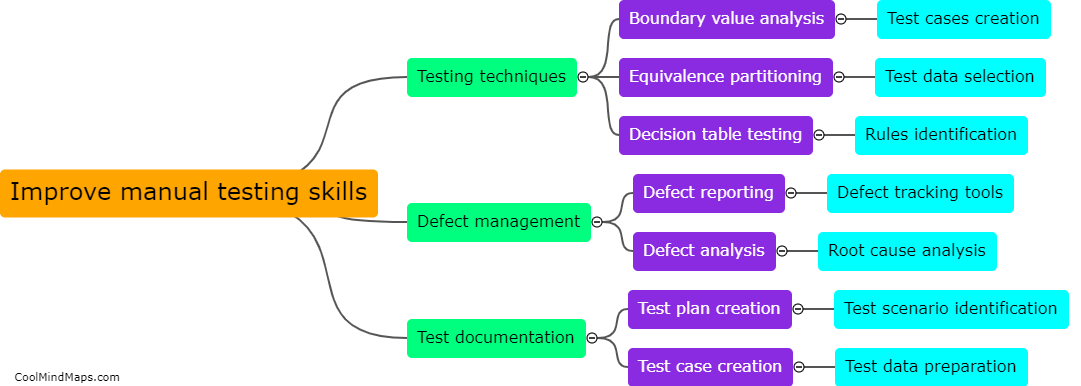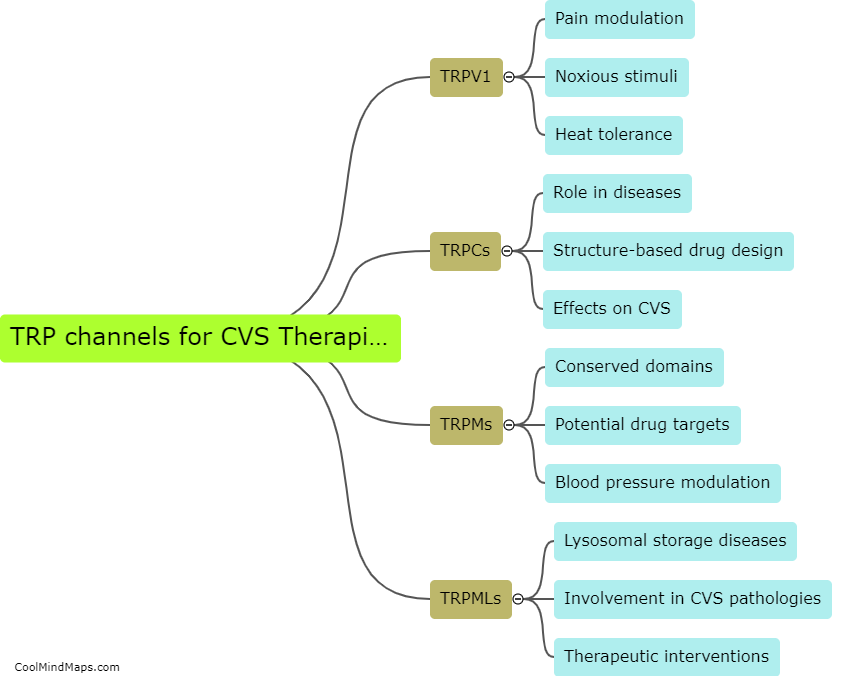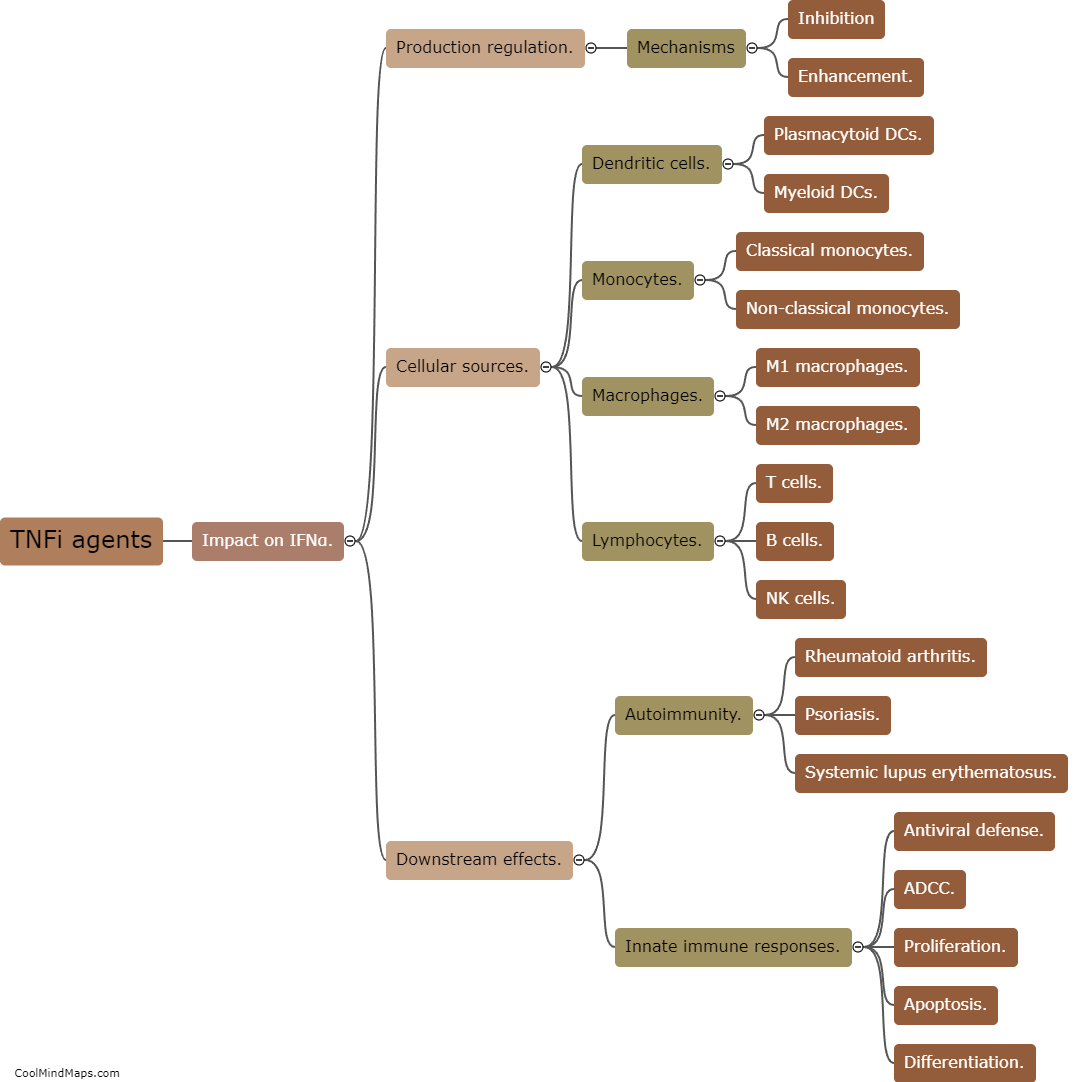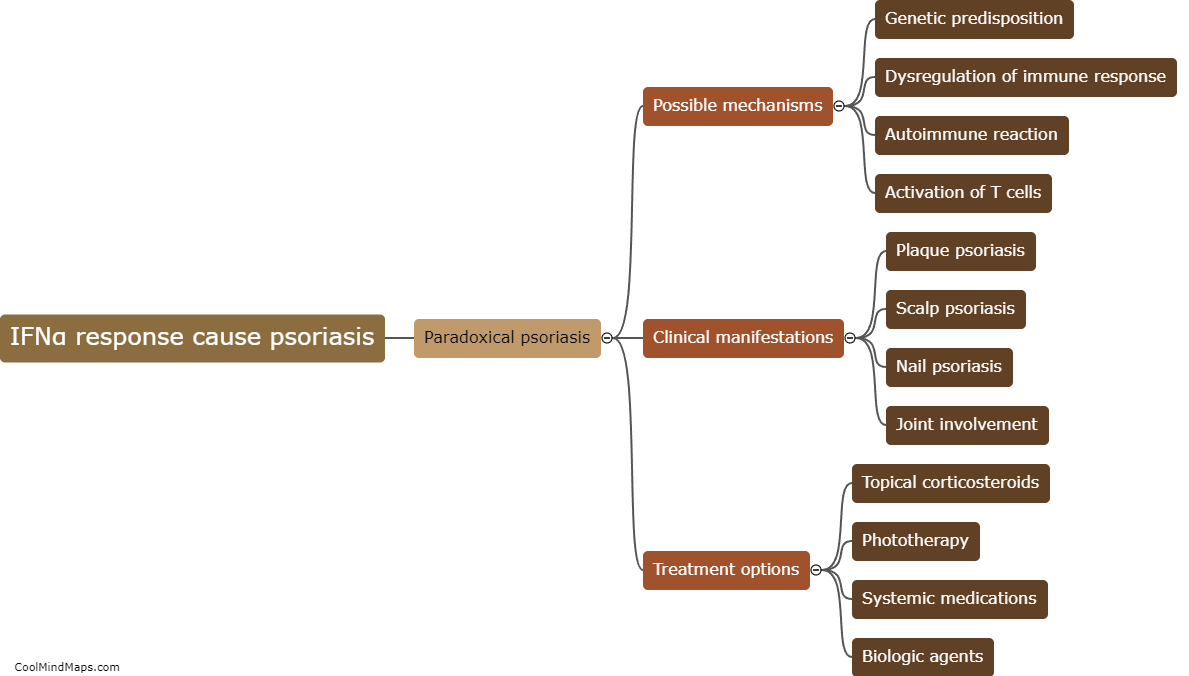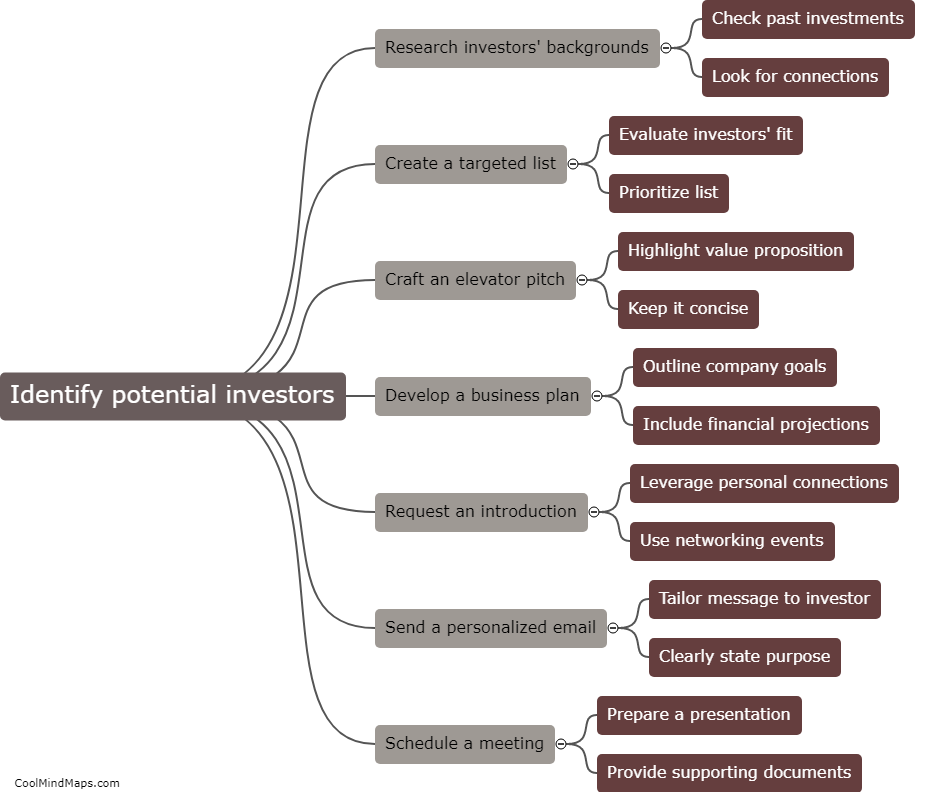How does blocking pDC maturation increase pDC's IFNα production capacity?
Blocking pDC (plasmacytoid dendritic cell) maturation enhances their production capacity for IFNα (interferon alpha) by disrupting the normal process of pDC activation and differentiation. pDCs are a specialized subset of dendritic cells responsible for immune response modulation, primarily through the production of IFNα. When pDCs encounter pathogens or viral DNA, they undergo maturation to become fully activated, leading to the secretion of IFNα. However, by blocking pDC maturation, the cells remain in an immature state, allowing them to accumulate higher levels of IFNα in their cytoplasm. This prevents premature release of IFNα and enables pDCs to produce larger quantities of this important antiviral cytokine when they encounter pathogenic material, thereby effectively combating viral infections.

This mind map was published on 13 July 2023 and has been viewed 261 times.

